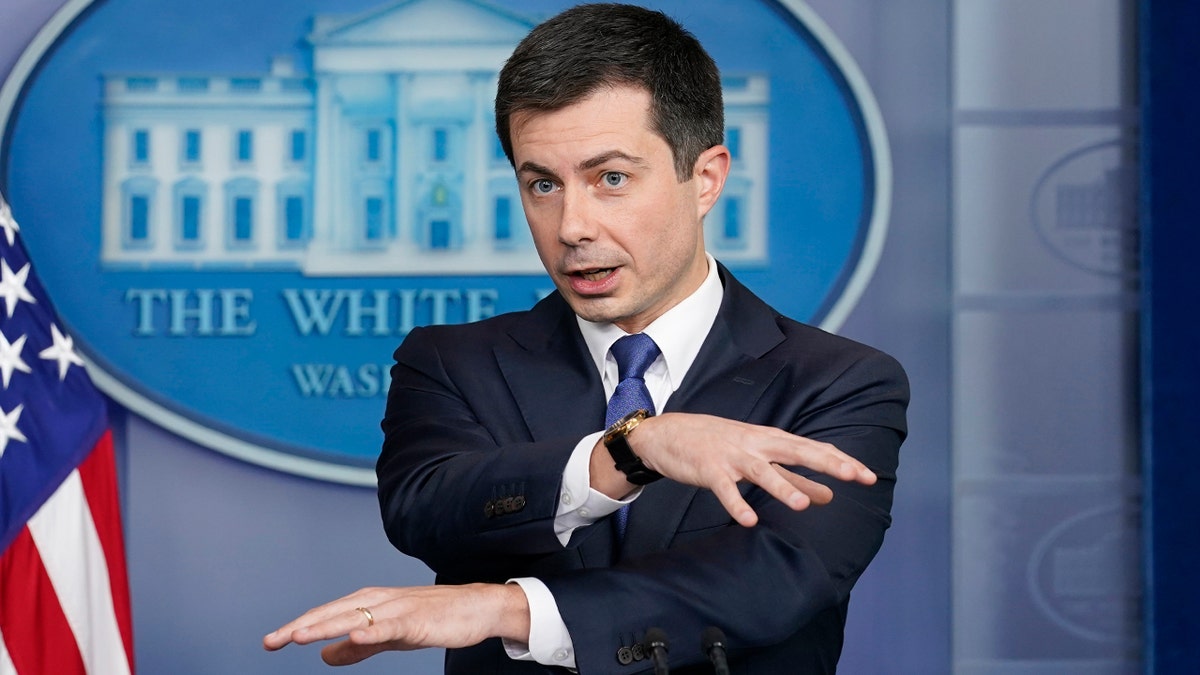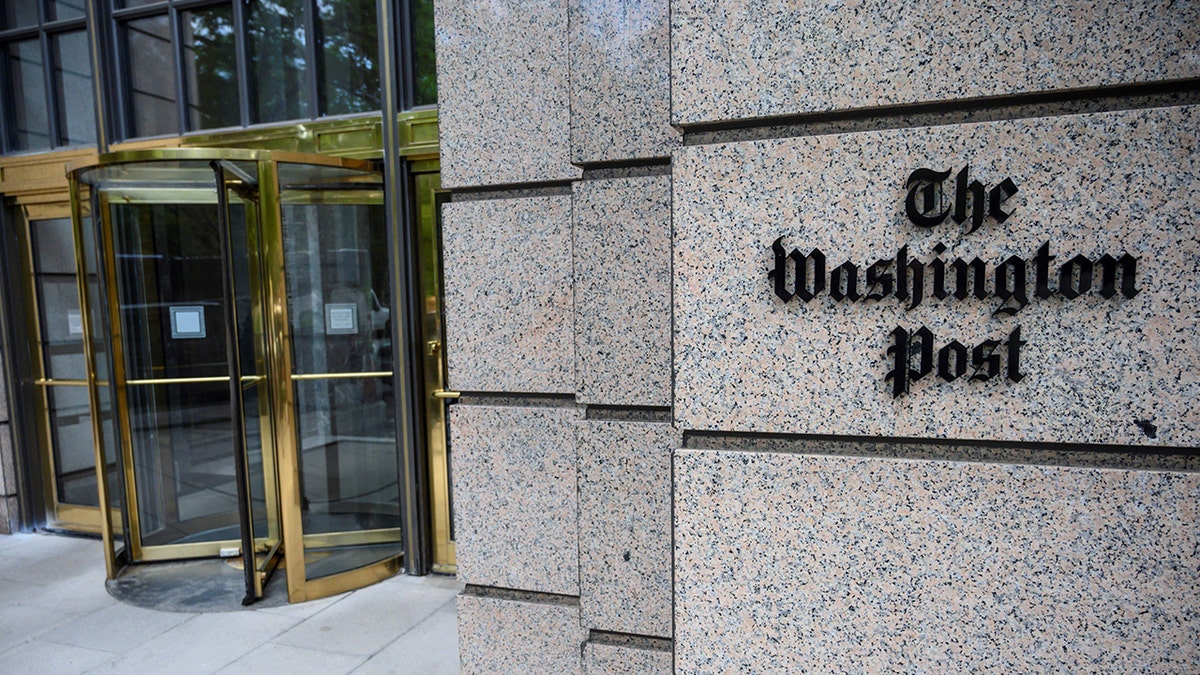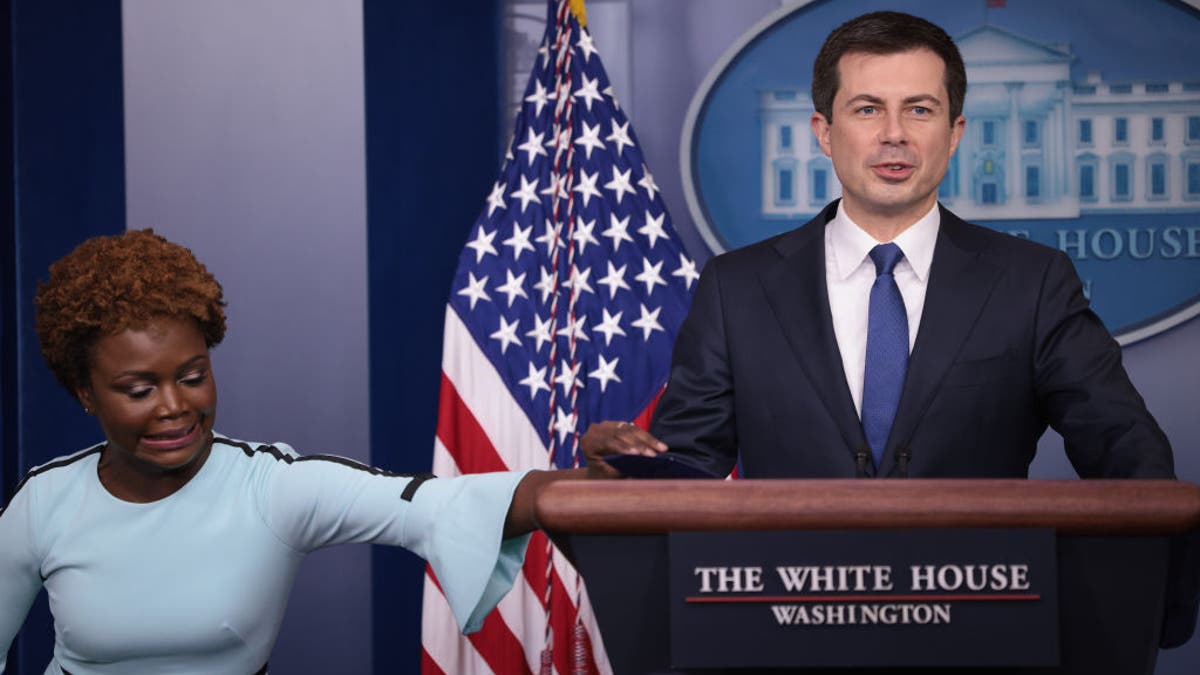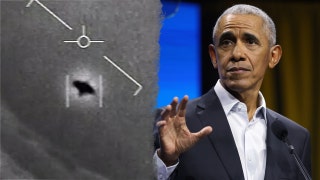Media top headlines November 10
'The View' guest clashes with Adam Schiff over the Steele dossier, Brian Williams announces plans to depart MSNBC, NBC News after 28 years, and a New York Times media columnist says journalist shouldn't be 'cheerleading' the FBI raid on James O'Keefe
The Washington Post admitted Wednesday it was wrong to do a knee-jerk defense of Transportation Secretary Pete Buttigieg’s recent comment about racist highways and bridges.
"We should be more careful to double-check on the latest views of historians," Washington Post fact-checker Glenn Kessler wrote.

Transportation Secretary Pete Buttigieg speaks during the daily briefing at the White House in Washington, Monday, Nov. 8, 2021. (AP Photo/Susan Walsh) (AP Photo/Susan Walsh)
It started Monday when Buttigieg expressed dismay that people don’t understand how roads and bridges can be racist.
"I’m still surprised that some people were surprised when I pointed to the fact that if a highway was built for the purpose of dividing a White and a Black neighborhood, or if an underpass was constructed such that a bus carrying mostly Black and Puerto Rican kids to a beach, or that would’ve been, in New York was designed too low for it to pass by, that that obviously reflects racism that went into those design choices," Buttigieg said during a White House briefing.
CNN'S APRIL RYAN ASKS PETE BUTTIGIEG TO ADDRESS THE 'RACISM' BUILT INTO OUR ROADWAYS
Buttigieg was swiftly mocked on social media by critics who objected to the comments, while others called for Kessler to chime in.
Kessler obliged, tweeting a defense of Buttigieg’s comment that claimed the tidbit was from Robert Caro's Pulitzer Prize-winning book, "The Power Broker."
Washington Post national correspondent Phillip Bump also rushed to Buttigieg’s defense, writing an analysis mirroring Kessler’s tweets headlined, "And this is why it’s useful to talk about historical examples of institutionalized racism," which claimed the transportation secretary’s remark "served as an opportunity not only to elevate the specific story to which he was referring but the utility of educating Americans about a complicated history of systemic racism."
Bump reiterated that Buttigieg was referring to a story from Caro’s book, which described a decades-old plan to stop Black people from visiting a beach in New York by making it difficult for buses to access the parkways.

Washington Post staffers initially rushed to the defense of Transportation Secretary Pete Buttigieg. (ERIC BARADAT/AFP via Getty Images) (ERIC BARADAT/AFP via Getty Images)
Bump complained Buttigieg was mocked for his remark and enlisted left-wing historian Kevin Kruse to explain that many American highways were designed to keep Black and White neighborhoods separated. Bump even boasted that Kruse’s work was part of The New York Times’ controversial "1619 Project," and Kessler added Bump’s article to his Twitter thread defending Buttigieg.
But Kessler got cold feet, publishing a story on Wednesday declaring he jumped the gun after multiple historians reached out to him.
"Well, our knee jerked," he wrote, noting that associate professor of history at Case Western University Peter Shulman informed the Post the tale from Caro’s book was "largely debunked."
Kessler then decided to "dig a little bit deeper" and get to the bottom of the story he previously defended. The Post’s fact-checker went into a lengthy history of Robert Moses, the famed builder who spent most of the 1900s creating the infrastructure of New York City and its surrounding areas who is the key figure in Caro’s book.
Kessler figured out the only source used in the 1974 book for the story parroted by Buttigieg 47 years later died two years before the book was even published and many experts feel the claim was exaggerated.

Washington Post admitted it was wrong to do a knee-jerk defense of Transportation Secretary Pete Buttigieg’s recent comment about racist highways and bridges. (Photo by Win McNamee/Getty Images)
"There has been some revisionism and Moses’s achievements are now viewed in a better light. In particular, the anecdote about the parkway bridges has been increasingly questioned, along with other details in Caro’s book," Kessler wrote.
One historian told the Post that "Moses did nothing different on Long Island from any parks commissioner in the country" because all parkways had low bridges at the time.
"Caro is wrong," a separate historian emailed to the Post, noting anyone could access the beach.
Other historians disagree in the polarizing tale, but the Post’s in-house fact-checker feels "The Bottom Line" is that the liberal newspaper shouldn’t have been so quick to defend Buttigieg.
CLICK HERE TO GET THE FOX NEWS APP
"Obviously this cannot be easily resolved. Caro quotes one of Moses’s top aides as saying the height of the bridges was done for racist reasons, but increasingly that story has been questioned as not credible," Kessler wrote. "Buttigieg should tailor his remarks to reflect what is historically unimpeachable — and we should be more careful to double-check on the latest views of historians. Even a Pulitzer Prize-winning book is not always the last word on a subject."










































